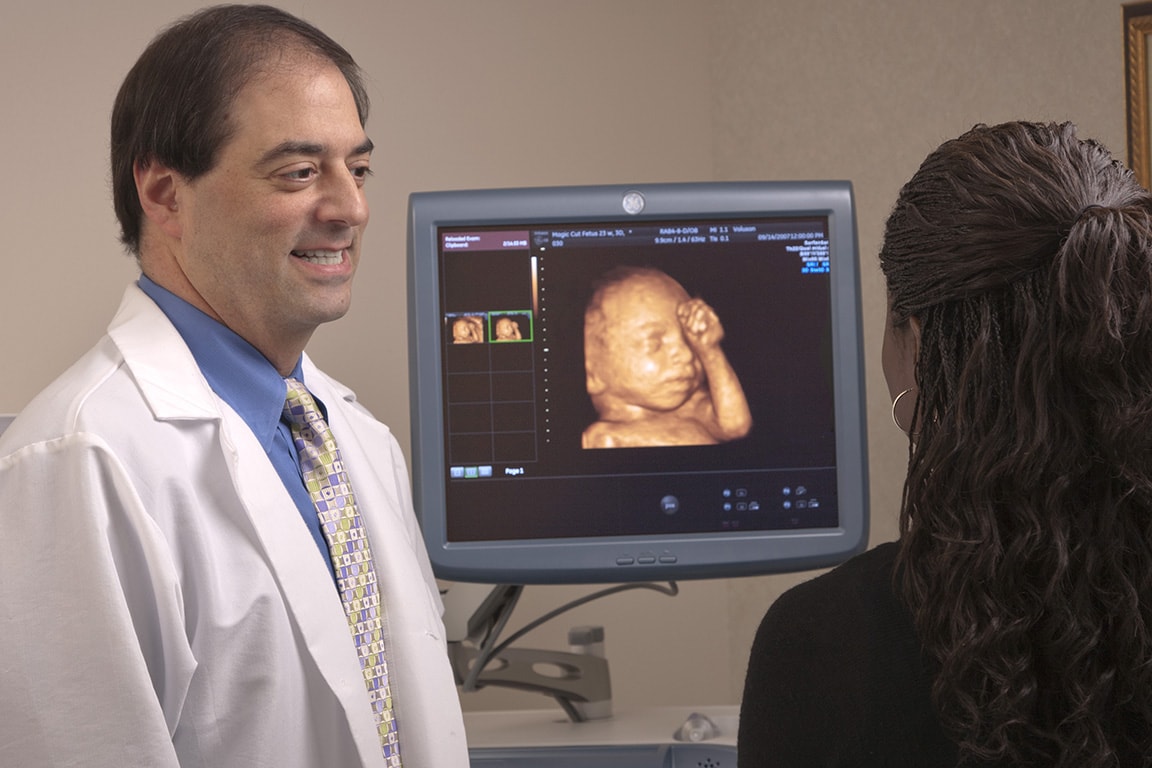St. Mary's Low C-section Rate Nationally Noted: SLUCare Doctors, Midwives Lead Charge
SSM Health St. Mary’s Hospital-St. Louis, staffed by SLUCare gynecologists and nurse midwives, has the second lowest C-section rate in the country for first-time, low-risk mothers, according to a new Consumer Reports investigation published on May 16, 2017.
The investigation found C-section rates for first-time, low-risk mothers varied greatly by hospital.
St. Mary’s Hospital’s rate of 12 percent is well below the national target for low-risk births of 23.9 percent.
St. Mary’s Hospital is committed to keeping the cesarean rate appropriately low without compromising safety, according to Gilad Gross, M.D., SLUCare maternal fetal medicine specialist and medical director of labor and delivery and postpartum services.
“Sometimes, a C-section is necessary for safe delivery. In low-risk situations, though, C-sections can cause unnecessary risks and complications for mothers and babies. They also greatly increase the chance of future C-sections,” Gross said. “By preventing unnecessary first C-sections, we can set the mom up for a lifelong healthy reproduction.”
There are many things that go into maintaining low C-section rates. According to Gross, the team reviews statistics monthly to keep track of how they are doing and address trends on the spot. “We have been remarkably stable over the past five to seven years, in large part, because our faculty and staff have been stable and they share this commitment to keeping cesarean rates low.”
As an academic medical practice, they also teach this mindset to residents and medical students, added SLUCare obstetrician Greg Ward, M.D., who is the ob/gyn residency program director at Saint Louis University School of Medicine and chief of the general ob/gyn division at St. Mary’s Hospital.
“We try to keep current with ACOG (American Congress of Obstetricians and Gynecologists) guidelines, which encourage the active management of labor and taking strategies to avoid the first C-section. Our mindset is to promote vaginal deliveries for everyone who is a candidate,” Ward said.
The standard course of care includes no elective inductions before 39 weeks of gestation, avoiding unnecessary elective inductions and not putting time limits deliveries.
“We try not to intervene unless we have to,” Ward said. “We do not let the time of day or our schedules affect patient care and we do not put time limits on labor if everything is looking good.”
Ongoing multidisciplinary education for providers at all levels is also important. The team focuses on maintaining expertise in the art of labor management, interpretation of fetal status during labor, as well as alternative birthing positions, other means of pain management and helping mothers cope with the labor process.
The SLUCare practice also employs three certified nurse midwives. “Nurse midwives are experts in labor management and they apply that not only to their patients but also to teaching pursuits for younger physicians,” Gross said. “It’s completely a collaborative effort. We all (midwives, obstetricians and maternal fetal specialists) employ each other’s expertise in providing best care for patients.”
Ward says the St. Mary’s Hospital staff also play a role in keeping C-section rates low. “We have great nursing care and support within our hospital,” Ward said. “The team really takes a patient-centered approach and individualizes care to optimize the birth experience for patients.”
Mothers-to-be have many options when it comes to choosing a hospital and provider. Gross encourages patients to have an open dialogue with their providers and to ask questions about their C-section rates and approaches to labor management.
“There’s certainly a lot of difference out there in how providers manage labor and what goes in to their decision making. As the Consumer Reports investigation showed, practices can vary greatly and it’s important for patients to know there are options out there,” he said.
SLUCare Physician Group is the academic medical practice of Saint Louis University, with more than 500 health care providers and 1,200 staff members in hospitals and medical offices throughout the St. Louis region.
SSM Health is a Catholic, not-for-profit health system serving the comprehensive health needs of communities across the Midwest through one of the largest integrated delivery systems in the nation.
SSM Health St. Mary’s Hospital – St. Louis is a 525-bed hospital specializing in high-risk obstetrics. A teaching hospital, St. Mary’s is home to an accredited internal medicine residency program and to Saint Louis University School of Medicine Obstetrics/Gynecology and Family Practice residency programs.


















